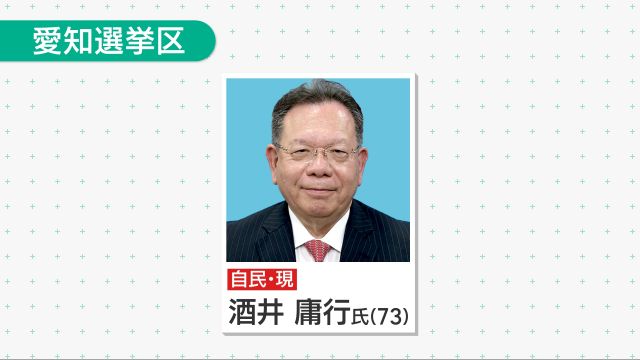In the Aichi electoral district for the House of Councillors election (4 seats up for election), incumbent LDP candidate Sakai Tsuneyuki (73) secured his third term.
Sakai attended the House of Councillors’ Political Ethics Review Committee regarding the “slush fund scandal” originating from an LDP faction’s political fundraising party.
He overcame a challenging election campaign amid headwinds.
Other winners in the Aichi electoral district included incumbent Constitutional Democrat Taijima Maiko, first-time candidate from the People’s Party Mizuno Koichi, and first-time candidate from the Participation Party Sugimoto Junko.
House of Councillors
The **House of Councillors** is the upper house of Japan’s National Diet (parliament), established in 1947 under the post-World War II Constitution. It replaced the pre-war House of Peers and serves as a deliberative body with the power to review and amend legislation passed by the lower house, the House of Representatives. Members are elected through a mixed system of regional and proportional representation, with staggered six-year terms ensuring continuity.
Aichi electoral district
The Aichi electoral district is a regional constituency in Aichi Prefecture, Japan, part of the country’s proportional representation system for the House of Representatives. Historically, Aichi has been a significant political and economic hub, home to major cities like Nagoya and a strong industrial base. The district’s electoral boundaries and influence have evolved over time, reflecting demographic shifts and Japan’s electoral reforms.
LDP
The **Liberal Democratic Party (LDP)** is Japan’s dominant political party, founded in 1955 through the merger of conservative factions. It has governed Japan almost continuously since its creation, playing a key role in the country’s post-war economic growth and political stability. The LDP is known for its pro-business policies, close ties with the U.S., and occasional nationalist stances.
Constitutional Democrat
The term **”Constitutional Democrat”** typically refers to a member of the **Constitutional Democratic Party** (or **Kadets**), a liberal political party in Russia founded in 1905 during the late Russian Empire. The party advocated for a constitutional monarchy, civil liberties, and democratic reforms, playing a key role in the short-lived **Russian Provisional Government** after the 1917 February Revolution. However, it was banned by the Bolsheviks after the October Revolution, leading to its dissolution or exile of its members.
(If you meant a different context, such as a modern usage, please clarify!)
People’s Party
The **People’s Party** (also known as the Populist Party) was a U.S. political party founded in 1891, representing farmers and laborers who opposed big business and financial elites. It advocated for economic reforms like free silver coinage, a graduated income tax, and government ownership of railroads. Though short-lived, it influenced later progressive movements before merging with the Democratic Party in the 1896 election.
Participation Party
The “Participation Party” is not a widely recognized cultural site or historical event, so there may be some confusion about the reference. If you are referring to a political or social movement, please provide additional details for a more accurate summary. Alternatively, if you meant a specific event or organization, clarifying its context (e.g., country, time period, or purpose) would help in crafting a proper summary. Let me know how you’d like to proceed!






